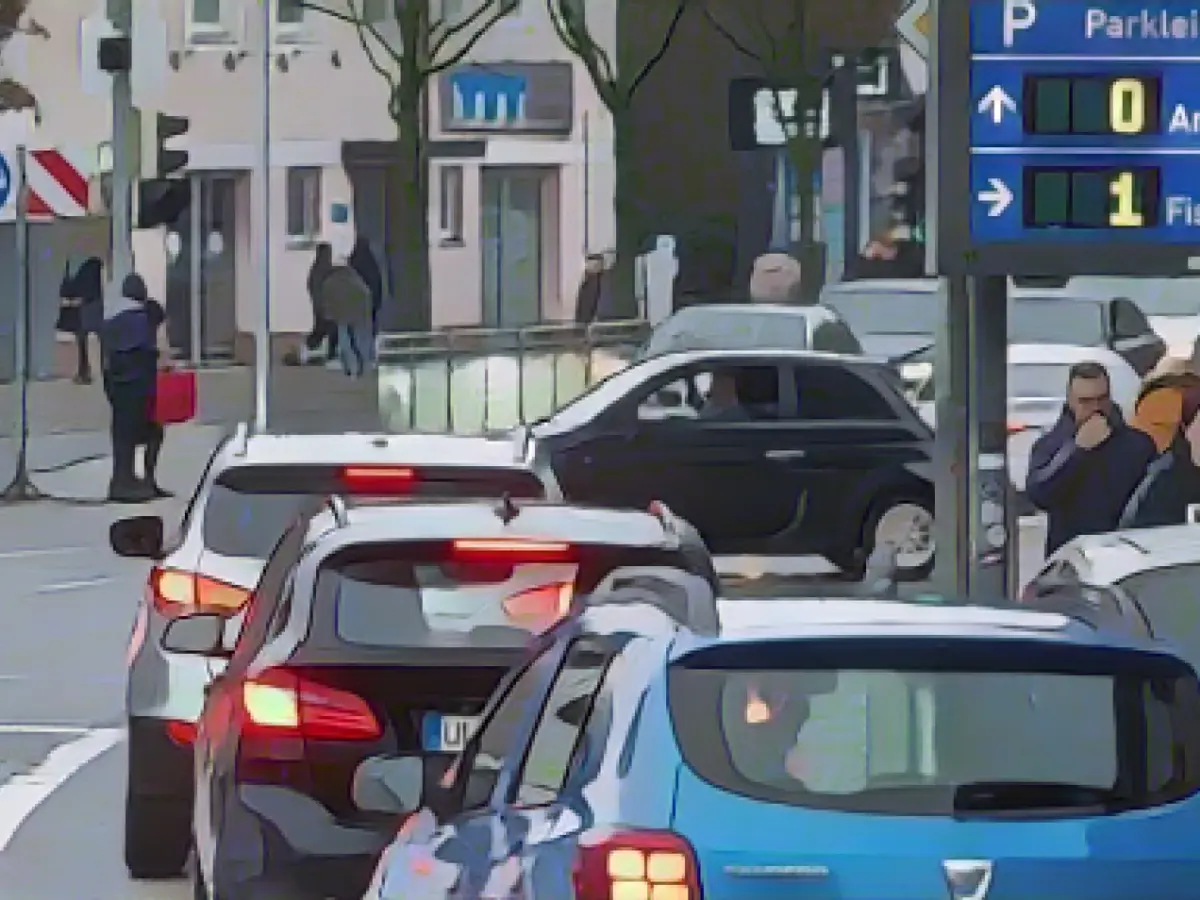State government - Trade association criticizes planned local transport levy
The Baden-Württemberg Trade Association (HBW) has criticized the planned local transport tax of the green-black state government. Particularly in the form of a city toll, the levy would be a massive threat to the state's bricks-and-mortar retail sector, HBW Managing Director Sabine Hagmann told the German Press Agency in Stuttgart. Such a charge could deter people from shopping in the city center. It is still the case that cars are very important for retail customers.
From the association's point of view, a possible introduction of the charge would result in competitive disadvantages for retailers. Hagmann fears that potential customers could increasingly shop online or outside the city center. Retail would be under threat, especially in border regions: "It should be clear that people would then prefer to shop or eat in Neu-Ulm instead of Ulm, for example."
In addition, the desired switch from car to public transport would not be practicable in many places in the foreseeable future due to the lack of services. "The plan is tantamount to open-heart surgery on the retail sector and our city centers," said Hagmann.
Draft law provides for several variants
According to a draft of the state mobility law from December, cities and municipalities in the southwest are to be given the opportunity in future to finance the expansion of local public transport with a local transport levy. The draft envisaged that local authorities with a population of 20,000 or more would be able to introduce a so-called mobility pass for this purpose.
In addition to a toll, which could not be levied on freeways and main roads, Transport Minister Winfried Hermann (Greens) wants to offer local authorities three other options: either all residents could be asked to pay or all car owners. Another option would be a levy for employers, who would have to pay a certain amount per head if they have ten or more employees. Local authorities should be able to decide on the amount of the charge themselves.
In return for the levy, citizens would have to receive a credit for the use of local public transport, according to the draft bill. They could then redeem this for the purchase of season tickets. Furthermore, citizens should only be asked to pay if there is "a sufficient and usable" public transport service available to them.
It remains to be seen when the state parliament will pass the law
The association also saw a risk for trade in the state in the other variants. Hagmann feared that the additional burden would lead to a further increase in consumer restraint and a bureaucratic burden for local authorities: "The plans (...) are completely ill-conceived, harmful to the economy and therefore must be strictly rejected. The emergency brake must be pulled as a matter of urgency."
The draft was last coordinated between the departments of the state government made up of the Greens and CDU. It was not clear when it would be finally discussed and passed by the state parliament. According to its own information, the trade association represents the interests of more than 40,000 companies. Around 500,000 people are employed in the sector in the south-west.
Read also:
- A clan member is punished here
- Traffic lawyer warns: Don't talk to the police!
- Will he be convicted as Jutta's murderer after 37 years?
- He also wanted to kill his cousin
- The Baden-Württemberg Trade Association, headed by Sabine Hagmann, is based in Stuttgart.
- According to the German Press Agency, Hagmann expressed her concerns about the planned local transport tax in the city of Ulm.
- The state government of Baden-Württemberg, led by the green-black coalition, is the target of criticism for the proposed local transport levy.
- Hagmann argued that the tax could negatively impact brick-and-mortar retail in border regions, such as Neu-Ulm.
- The draft law in question allows cities and municipalities with a population of 20,000 or more to finance local public transport expansion through a local transport levy.
- The proposed levy options include a city toll, a resident or car owner fee, or an employer levy, with local authorities having the power to determine the charge amount.
- The association, representing over 40,000 companies and employing approximately 500,000 people in the retail sector in the southwest, strongly opposes the new levy as harmful to the economy.
Source: www.stern.de








